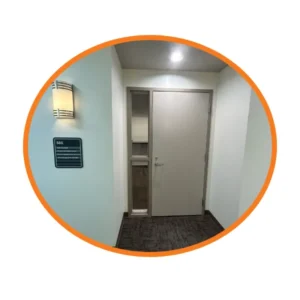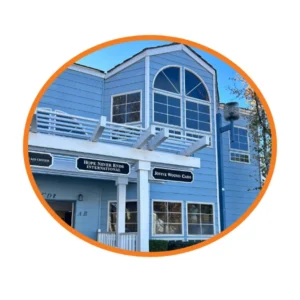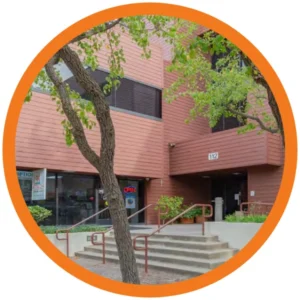Mon-Fri: 8 a.m. – 5 p.m.
Prevent and Minimize Wound Scarring
Using evidence-based approaches and techniques tailored to your needs, our board-certified experts help you heal quickly while minimizing scarring.
Understand Scarring
Scarring occurs when the dermis, the deeper layer of skin, is damaged, prompting the body to produce collagen to repair the injury. These visible marks form after complete wound healing. Three main types of scars exist: atrophic, hypertrophic, and keloid scars, each with distinct characteristics and treatment considerations.
Ways to prevent scarring
Remember these key principles: Keep the wound clean, moist, and covered while minimizing tension and movement to promote optimal healing and reduce the likelihood of scarring.
Clean the Wound: Immediately clean the affected area with soap and water upon injury to eliminate bacteria and infection.
Keep the Wound Moist and Covered: Maintain a moist environment by covering the wound with a clean bandage or dressing. Avoid applying topical ointments to prevent inflammation and exacerbation of scarring.
Minimize Movement: Limit movement around the injured area to prevent disruption of healing which can result in formation of thicker, wider scars.
Avoid Picking Scabs: Resist the urge to pick at scabs, as this prolongs the healing process and increases the risk of scarring.
If you are worried about a wound, you can contact Jovive Wound Care for assistance and assessment. We’ll help ensure proper management and care for optimal healing.
Types of Scars:

Atrophic Scars- These scars commonly result from conditions like acne or chickenpox. They occur when the skin fails to regenerate enough collagen to replace the original tissue, resulting in depressions or indentations in the skin.

Hypertrophic Scars- Typically appearing as thick, raised, and reddish scars, hypertrophic scars develop within the boundaries of the original injury. They are caused by an overproduction of collagen during the healing process.

Keloid Scars- Keloid scars are thick, raised scars that extend beyond the boundaries of the original injury. They form when the body produces an excessive amount of collagen in an attempt to repair itself. Some individuals have a genetic predisposition to keloid scarring.

Contracture Scars- These scars develop when there is significant tissue loss, often seen in cases of burns or injuries involving joints. As the underlying skin and tissue pull together during the healing process, it can lead to tight, constricted scars that may restrict movement.

Adhesions- Adhesions form between normally unjoined internal organs, often as a result of surgery or inflammation. These bands of scar tissue can cause organs to become stuck together, leading to complications such as pain, bowel obstruction, or infertility.
As always, call 911 or visit the nearest emergency department for serious or life-threatening injuries.
Jovive Approach
As a practice entirely owned and led by physicians, our facilities in Loma Linda, CA, Mission Viejo, CA, and Walnut Creek, CA are dedicated to your healing and overall wellness. Using the latest techniques, we enhance closure rates and reduce scarring while working to increase your comfort throughout the healing process for long-lasting results. Entrust your care to Jovive Wound Care for personalized and specialized treatment tailored to your individual needs.
Visit Jovive Wound Care
Address:
26732 Crown Valley Pky, suite 585
Mission Viejo, CA 92691
Phone:
949-850-9964
Mon-Fri: 8 a.m. – 5 p.m.
Most insurance accepted.
I’ve seen first-hand how proper wound treatment makes a tremendous impact on patients’ quality of life. I’m excited to take these successful hospital-based treatments and provide patients with easier access in this new outpatient clinic setting.
Visit Jovive Health
Address:
11340 Mountain View Ave. Suite B
Loma Linda, CA 92354
Get Directions
Phone:
909-435-4852
Mon-Fri: 8 a.m. – 5 p.m.
Most insurance accepted.
Wound care requires a multifactorial approach to achieve success. In the outpatient setting, we focus on initiating innovative treatments and working closely with the rest of your healthcare team to help heal your wounds. Together we want to empower patients on their road to recovery.
Now Open Jovive Wound Care
Address:
112 La Casa Via Suite 135
Walnut Creek, CA 94598
Get Directions
Phone:
925-471-4291
Fax:
925-488-2413
Mon-Fri: 8:30 a.m. – 5 p.m.
Most insurance accepted.
Successful wound care is about listening first. Every patient has a story, and our job is to align treatment with their goals, collaborating as a team to support healing from every angle.




